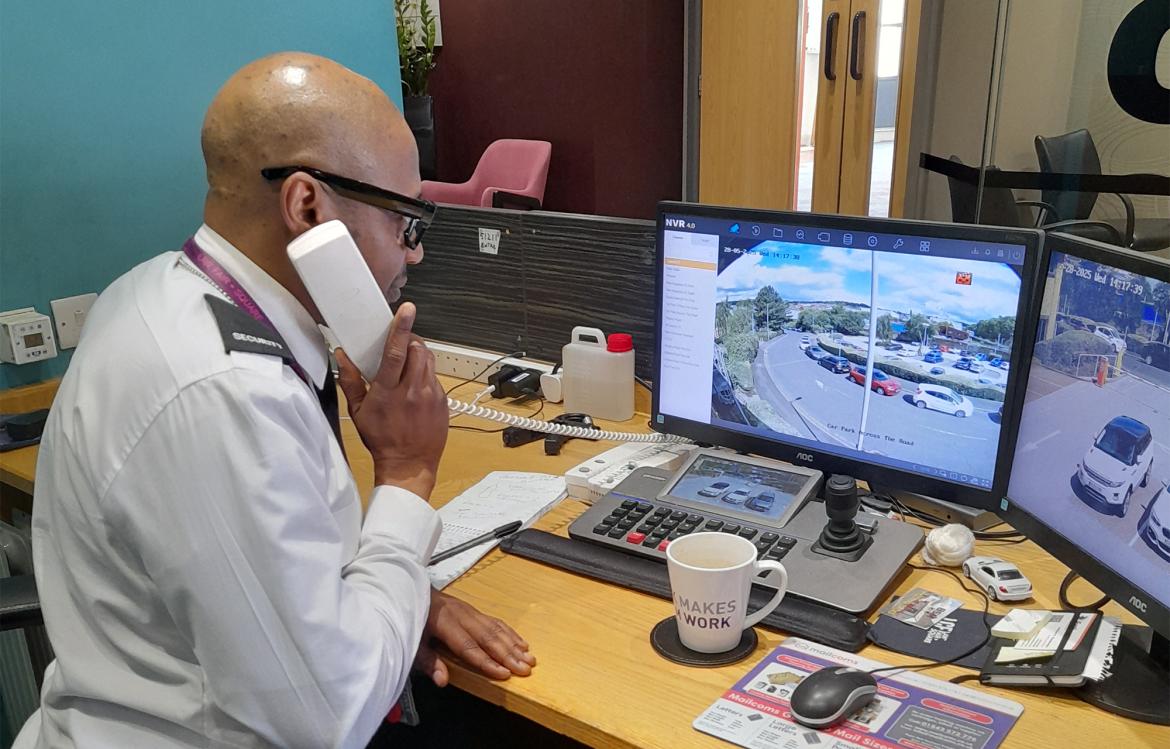
In today's dynamic and often unpredictable world, the role of a security officer extends far beyond mere presence and enforcement. While adherence to protocols remain fundamental, the most effective security professionals distinguish themselves through a sophisticated blend of soft skills. These crucial interpersonal and emotional competencies not only enhance their operational effectiveness but also deliver substantial benefits to clients, fostering safer, more harmonious, and ultimately more productive environments.
Our Contract Manager Ihtishaam (Ihti Mahmood) tells us more:
Emotional Intelligence
“One of the most critical soft skills for any security officer is emotional intelligence. This involves the ability to understand, use, and manage your own emotions, as well as recognising and responding to the emotions of others. It involves skills like self-awareness, self-regulation, empathy, and social skills. For a security officer, high emotional intelligence translates into remaining calm and composed, even when faced with high-stress or
confrontational situations. Self-awareness enables them to understand their own reactions and unconscious biases, preventing impulsive or inappropriate responses. Self-regulation ensures they maintain control, projecting an image of professionalism and authority that can de-escalate volatile situations.

“Empathy is vital for truly understanding the perspectives and feelings of individuals, whether they are distressed, agitated, or simply confused. This understanding allows the officer to tailor their approach, offering appropriate support or intervention.
“Strong social skills bring effective interaction with a diverse range of people, from employees and visitors to the emergency services.
“The profound benefit of an emotionally intelligent security officer to a client is the creation of a calmer, more respectful atmosphere, a reduction in the frequency and intensity of confrontations, and a more positive perception of the security team as approachable and helpful guardians.

Problem solving and critical thinking
“Equally vital are problem-solving and critical thinking skills. Being able to make quick decisions under pressure with a range of different factors and a range of risks is essential. Security officers are frequently the first responders to unforeseen incidents, from minor disturbances to significant emergencies. Their capacity to rapidly assess a situation, identify potential threats or risks, and formulate an effective course of action is paramount. This isn't about simply following a checklist; it requires the ability to process information, often under time constraints and with incomplete data, and make sound judgments.
“Critical thinking allows officers to differentiate between genuine threats and false alarms, prioritise tasks, and allocate resources efficiently. For the client, this translates directly into swift and decisive incident management, minimising potential damage, disruption, or harm. Whether it's a genuine emergency requiring immediate evacuation or a complex issue needing careful investigation, the client gains immense value from a security team that can think on its feet and make intelligent, effective decisions under pressure.

Diffusing difficult situations
“Finally, conflict resolution, excellent communication and active listening skills are indispensable tools in a security officer's arsenal. The primary objective is always de-escalation – to lower the emotional temperature and guide the situation towards a peaceful and constructive resolution. Security personnel are often thrust into the role of mediators in disputes or the first point of contact in potentially volatile situations. Their ability to truly hear and understand differing viewpoints, is crucial for gathering complete information. Clear, concise, and calm communication ensures that instructions are understood, and that all parties involved feel acknowledged and respected.
Measurable benefits for clients and colleagues
“For the client, this translates into fewer disruptions to their operations, a more harmonious environment for staff and visitors, and a significant reduction in the risk of escalation leading to further issues or potential liabilities. A security officer skilled in diffusing tension and resolving conflict effectively is an invaluable asset, safeguarding the client's reputation and ensuring the overall safety and comfort of everyone on the premises.
“While the foundational aspects of physical security and procedural adherence remain important, the modern security officer's true value is often found in their mastery of soft skills. Emotional intelligence, astute problem-solving, critical thinking, and expert communication are not merely desirable traits; they are indispensable competencies that transform security personnel from static guardians into dynamic, empathetic, and highly effective professionals. These skills ultimately create environments where safety, order, and well-being are not just maintained but actively fostered, providing measurable benefits to every client.”

